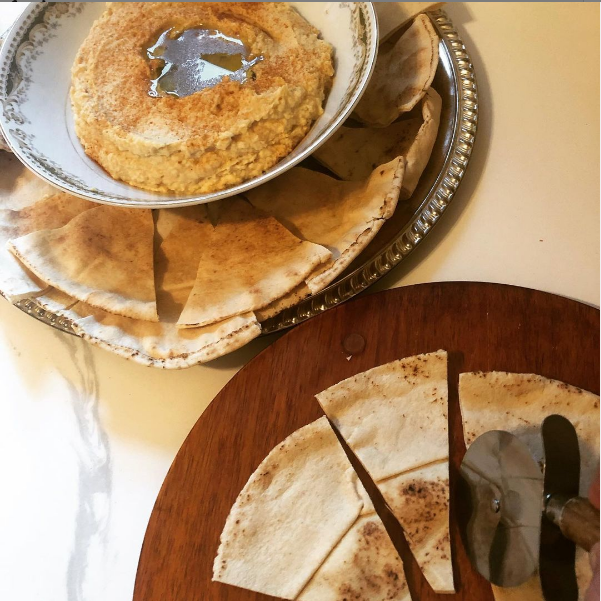
On Being a Palestinian: A Revelation and a Recipe
by Fayeruz Regan 09.2021
My first name gives me away. Telling others that I’m a Palestinian feels like a political statement, as if I’m asserting my right to exist.
Strangely, the latest tragedy in Gaza has made it easier. I give credit to the Black Lives Matter groundswell from last summer. This passion for justice carried over into other corners of society, from the LGBTQ+ community to the Palestinians.
People are beginning to take a second look, questioning the history that they were told was “too complicated.” Say what you will about Millennials and Gens Y and Z, but they were bold enough to stand up to systemic racism, sexism and all the horrors in between. They took to social media. They took to the streets. They pushed back against norms that my generation (X, to be precise) was too sleepy to do anything about.
Being a Palestinian in America meant growing up with assumptions that were tacked onto you. It was assumed we were Muslim (we were not), that we hated Jewish people (we did not) and that we could be terrorists (we were not). We quietly nodded along when people said it was “too complicated” to understand, though we knew it wasn’t. We only knew that they weren’t interested enough to learn.
We were taught to disarm Jewish people if they seemed uncomfortable with our ethnicity. For although we were surrounded by Jewish people growing up, we were likely their first Palestinian. I used humor to break the ice and switch the subject as quickly as possible.
For generations, if a Palestinian wanted to open a restaurant, they had to call it a Lebanese restaurant, for fear of being ostracized. It continues to this day. When was the last time you saw a Palestinian restaurant? Though 9/11 had nothing to do with Palestine, it got worse for all Arabs. That is, until the Black Lives Matter movement.
Palestinians understand the unprovoked police violence towards the Black community in America. They painted a George Floyd mural on the walls that Israel built around them. When American protesters were getting tear-gassed by police, Palestinians taught them how to cover the bombs with orange traffic cones. There’s a kinship there.
Now when Israel breaks International law, the news outlets have to admit it, if only to avoid backlash. Jewish kids on their “birthright” trips to Israel are asking hard questions. Taxpayers are wondering why billions of dollars are given to Israel annually. They now realize that Jewish people cannot all be lumped in with the extremist, right-wing government in Israel, just as Palestinians cannot be represented by Hamas. Most of us want to coexist in peace as we had been for thousands of years, before the British intervened, partnering with Zionists to create Israel in 1948.
The youth of today push us to be better, and not shrug history off as “too complicated.” Though the initial wave of support on social media has died down among non-Palestinians, there is an undeniable awakening taking place. Our daily feed has been peppered with compassionate and educational posts from the Palestinian perspective. Even if our friends aren’t sharing these posts, they’re seeing them. Never underestimate the power of planting a seed.
On that note, I’d love to share a family recipe in celebration of this cultural shift. It’s a crowd-pleaser that requires zero cooking: Hummus.
Ingredients:
1 can of chick peas
A little chick pea can juice
Juice from 1/2 a lemon
1 tablespoon of tahina sauce
2 garlic cloves
Salt to taste
olive oil (optional)
paprika (optional)
Instructions:
Drain the can of chick peas but save a little of the water in a bowl
Place all ingredients (except chick pea juice, olive oil and paprika) in a food processor and blend
If the mixture seems dry, add a little bit of chick pea juice
Taste, and if the mix needs a little zest, add extra lemon, salt or garlic
If you want to add more tahina to taste, feel free
If you'd like to make a better presentation, place the hummus in a beautiful bowl, take the back of a spoon and smooth it out
Make a small dip in the top of the hummus, and pour in a shallow puddle of olive oil
Dust with paprika for color
Bon appetit, or as they say in Arabic: Sahtein!
